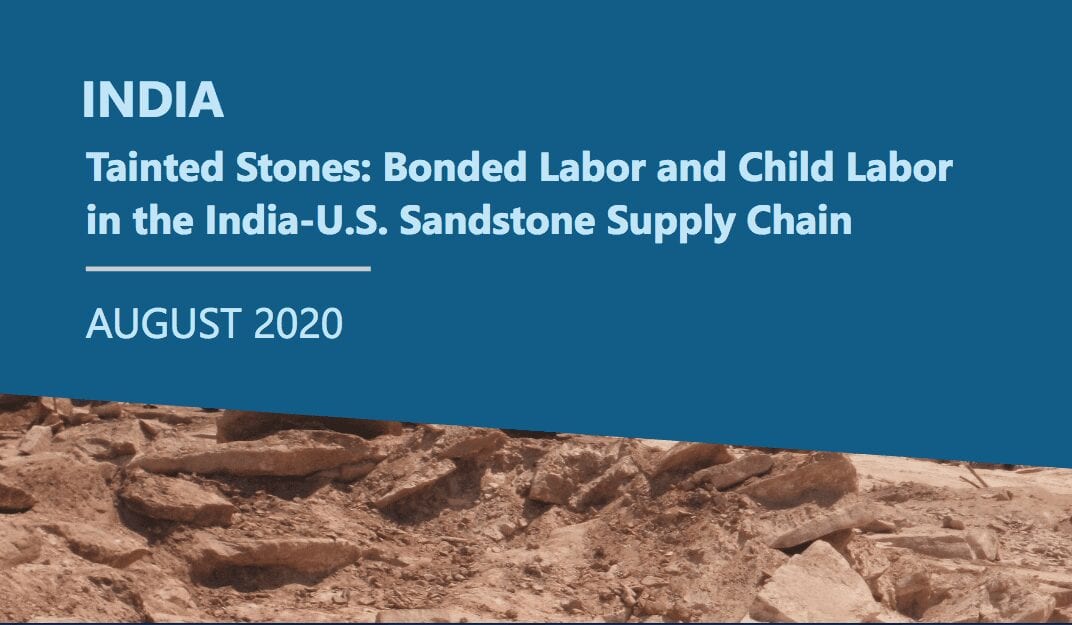
Tainted Stones: Bonded Labor and Child Labor in the India-U.S. Sandstone Supply Chain
Three million workers are employed in India’s sandstone mining industry on a seasonal basis, with nearly 90% of India’s sandstone produced in the state of Rajasthan. Although the Government of Rajasthan has issued thousands of mining licenses and leases, there is a thriving unregulated and unlicensed market. The United States is the fourth largest importer of Indian sandstone, with a total import of 97 million pounds valued at US$ 16.7 million.
Evidence-based research has shown serious human rights violations committed in the sandstone industry in Rajasthan. Workers, particularly those mining at quarry sites, are subjected to bonded labor, child labor, low wages, and inhumane working conditions. The lack of occupational health and safety safeguards remains a serious concern in this industry, with mining workers suffering diseases including the incurable and fatal silicosis. These violations are exacerbated by the entrenched gender discrimination and social inequalities found in India’s society. As such, vulnerable groups, like women and Dalits, are more prone to exploitation and harassment in the industry.
The supply chain in Rajasthan’s sandstone industry is often complicated, unregulated, and nontransparent. The stone goes through several stages of cutting, splitting, polishing, washing, and sale—all through multiple intermediaries—before the product reaches its final destination. This, compounded by the fact that many mines are unregistered and unlicensed, has led to abuses in an opaque and secretive supply chain. Human rights violations are concentrated in the quarry level, often due to the unregulated nature of the work. The lack of an established formal relationship between employer and employee and ineffective implementation of existing protective legislation has impeded accountability for mine owners and other actors in the supply chain. In addition to violating Indian law, the import of products derived from forced or child labor into the United States is prohibited by U.S. law.
Considering this complex landscape, the American Bar Association Center for Human Rights undertook a comprehensive study to examine the Indian sandstone mining industry in the state of Rajasthan. The study examined potential human rights violations in the U.S. supply chain. Through literature review, a survey, and in-person interviews, this report documents serious human rights violations committed in the sandstones supply chain. The Center examined the national legal framework, protection mechanisms, and their compliance with international human rights law and international labor standards. The first part of the report details the multifaceted supply chain of the sandstone mining industry. It then explores whether the issues affecting the industry alleged in other reports also exist in the case of stone imported into the United States.
The study found that stones which the United States imports can likely be traced to a supply chain that is marred by serious human rights violations. In the context of the United States’ importation, the unregistered—and thus legally unprotected—workers are subjected to bonded labor, child bonded labor, child labor, low wages, occupational health and safety hazards.
Read here.
